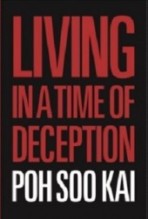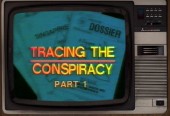Tang Fong Har was one of the six arrested on 20 June 1987. The other five were Chew Kheng Chuan (K C Chew), Chng Suan Tze and three young Polytechnic students, Ronnie Ng, Fan Wan Peng and Nur Effendi. A day before, 10 of the 16 arrested on 21 May 1987 were served with one-year detention orders while Vincent Cheng was served with a two year detention order.
I have often wondered why Fong Har was arrested. She had not been an active member of any organisation. Being new in the legal profession, she worked very hard and had no time for anything else. During interrogation, ISD officers told her that they were not interested in her work in the Law Society or the help she rendered to Mr Corera of the Workers’ Party during the 1984 general election. After reading her account, my conclusion is that she was arrested because she had spoken to veteran lawyer, the late J B Jeyaretnam and human rights organisations like Amnesty International soon after the arrests on 21 May 1987. That was exactly the reason for the arrest of Patrick Seong in 1988 when he disseminated information to human rights organisations after the rearrest of eight signatories to the joint statement. In the 1980s, the ISD and the PAP government were exceedingly intolerant of criticisms and human rights advocates.
– Teo Soh Lung
PART 2
INTERROGATION:
I FELT really frightened, cold, angry and sleepy. It was the longest night in my life. After my ‘medical’ examination, I was led out of the room and down a passage. After some turns, I reached a door, which opened onto a flight of stairs leading to the basement.
As I walked, without my glasses, I heard noises everywhere. I was approached several times by different men, each of whom said in a haughty manner, “So you are Tang Fong Har'” and then walked off. The basement was pitch-black except for the glaring lights. I was led into a room.
It was very dark except for the two spotlights. It was filled with cigarette smoke – there seemed to be about seven or eight people there. The air-conditioning was very strong, and the floor was bare concrete. I felt cold and fearful.
After what seemed an eternity of eerie silence, a voice boomed – “So, Tang Fong Har, at last you are here.” Then there began a series of questions and outrageous allegations. I could not hear properly as I was disoriented and I was not allowed to wear my glasses.
The hurling of questions, allegations, and loud noises went on for some time. I was so stupefied that I kept quiet. When I felt that I could not keep quiet anymore, I told them I needed my glasses as they affected my hearing. My glasses were then returned. I saw four people seated at the table. Two or three other people were standing nearby in sports jackets, shoes and socks. Barefoot and in prison garb, I felt humiliated and very cold. I was shivering and I tried very hard to stop my teeth from chattering but I could not, and the interrogators just watched me as I was in near-spasms trying to control the cold.
At one point during the interrogation I was threatened with indefinite detention and asked whether I intended to emulate Chia Thye Poh. They warned me that if I chose to remain quiet, they could wait for 20 years or more, just as they had waited for Chia Thye Poh.
I refused to believe them but somehow my heart went cold. I felt I could not stay in this place for another minute, let alone 20 years. I also felt immense admiration for Chia Thye Poh. The male interrogator throughout made snide remarks about lawyers and the legal profession and belittled my work in the Law Society. In the midst of the accusations being hurled at me, I retorted “Now, look here…” or words to that effect. I never completed my sentence: one of the interrogators slapped me across my left cheek, not with a flick of his wrist but with the full force of his body. I fell to the ground and my glasses landed on my chest. I was completely shocked by the assault and wished that I could faint as I felt that I could not take any more. I had never felt more humiliated in my life.
The female Chinese then made a show of helping me to stand and said something like “It’s ok. Take it easy. Why don’t you co-operate?” I can’t remember whether the interrogator who slapped me remained in the room after that. However, I remember his face and subsequently I came to know his name: S. K. Tan.
I was then questioned on my ‘escape’ from Singapore on May 21 and my whereabouts from then until my return on June 8. I also had to account for my movements since my return. They assured me that I had not been arrested because of my work in the Law Society or for helping Mr Corera, the Workers’ Party candidate for the Alexandra constituency in the 1984 general election. However, I was not informed about the allegations and charges against me until the detention order was served on me. The questions/statements/allegations went on for some hours. Every time I went to the lavatory, I vomited and I felt even colder when I returned. I had looked at myself in the toilet mirror and I was a ghastly sight.
This was the first time in public that I was bra-less and I stooped whenever I walked so as to hide my breasts. My posture was a semi-permanent curve soon after. I could not stop the trembling. I vomited countless times, and by the morning of the third day I had my period and I stained the prison pants.
I continued vomiting until the fourth day, by which time I felt quite famished. I had never felt more terrible in my life. Some 10 hours later, I was led out of the basement and into one of the rooms off the passage, and was given a chair.
My case officer, David Ng, sat opposite me and we started talking. While we discussed my statements, other officers like S. K. Tan, a Benny Lim (allegedly number 3 in the ISD), Lim Poh Quee and Sim Poh Heng would walk in individually at different times to ‘clarify’ certain points.
Before my arrest, I had settled in my mind that statements extracted from me or any other detainee in this farcical operation were invalid and of no probative value. They could never stand up to scrutiny in a court of law. I had done nothing subversive and I was not disloyal to Singapore. It is as much my country as it is the rulers’. Should I keep quiet and let them deal with me as they wished? I decided to write; but I feel, with hindsight, that I was sometimes careless in describing events and people and what I wrote was twisted – and I ‘incriminated’ people, those already detained and those not yet arrested, in my effort to protect them.
I was never given the chance to write the statements in my own way. When I first started, I had barely finished two pages when my case officer looked through them and said, “That won’t do, Fong Har, you are describing one activity after another. The flavour doesn’t come out, Fong Har, you understand?”
I understood perfectly and I learnt to take the cue from him. I started writing only when he was satisfied. The writing drained me. I felt very exhausted and I just wanted to finish with it, the sooner the better. I was then told about the TV appearance. Initially, I refused to appear; but I was told that Chew Kheng Chuan (KC), a printer and one of the six detained on 20 June 1987 and Chng Suan Tze, a lecturer at the Singapore Polytechnic, also one of the six detained on June 20, 1987, would appear, and so I agreed.
Some three days before the television appearance, my case officer typed out a summary of what I had to say and made me memorise it. On the day, when we reached the ISD bungalow near Tanglin Park, my case officer took away my summary. The filming took about 90 minutes. Khamaruddin, theSingapore Broadcasting Corporation interviewer, only asked me one question and I rattled on. When I had finished, he looked at me and asked how I felt now. This question was unexpected and I was at a complete loss for words.
There was a pregnant pause; and I ended up by saying that if unwittingly I had done a disservice to Singapore, I felt bad about it. I heaved a sigh of relief when the microphone was removed. My dress was drenched with perspiration.
I then remembered that I had not talked about the Third Stage (a theatre group accused of subversion). My case officer presumably had studied the summary and realised the omission, too, and I then had to talk about the Third Stage.
Suan joined me. I felt so happy to see a friend that I hugged her. Then KC joined us. I was delighted to see him too. We were made to sit together with Khamaruddin and ‘donkey shots’ were taken of us to give the impression to the public that Khamaruddin had conducted the interview with the three of us together.
We were allowed to talk to each other, and ISD officers (Benny and KC’s officer) joined us. Before they joined us, Suan told us that she would be detained for two years at least, as she had told Khamaruddin that she did not believe in the alleged Marxist conspiracy before her arrest, and after her arrest she had found it even more difficult to believe.
After they joined us, KC told Benny about it and asked if Suan could re-do that part. Benny assured her that it was all right if that was what she believed. He also said that it would not affect her chances of release in any way. We were brought back to the detention centre in different cars.
They used a variety of methods to intimidate me and to make me feel guilty. I was made to feel ashamed of my past and consequently, ashamed of my present lifestyle.
By Tang Fong Har





Pingback: Memories of a Detainee: What it Feels Like to be Detained Under the ISD | The Global Point